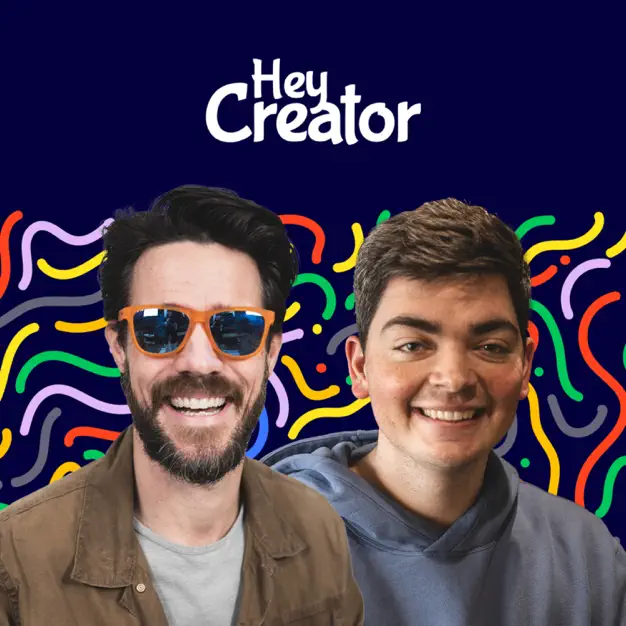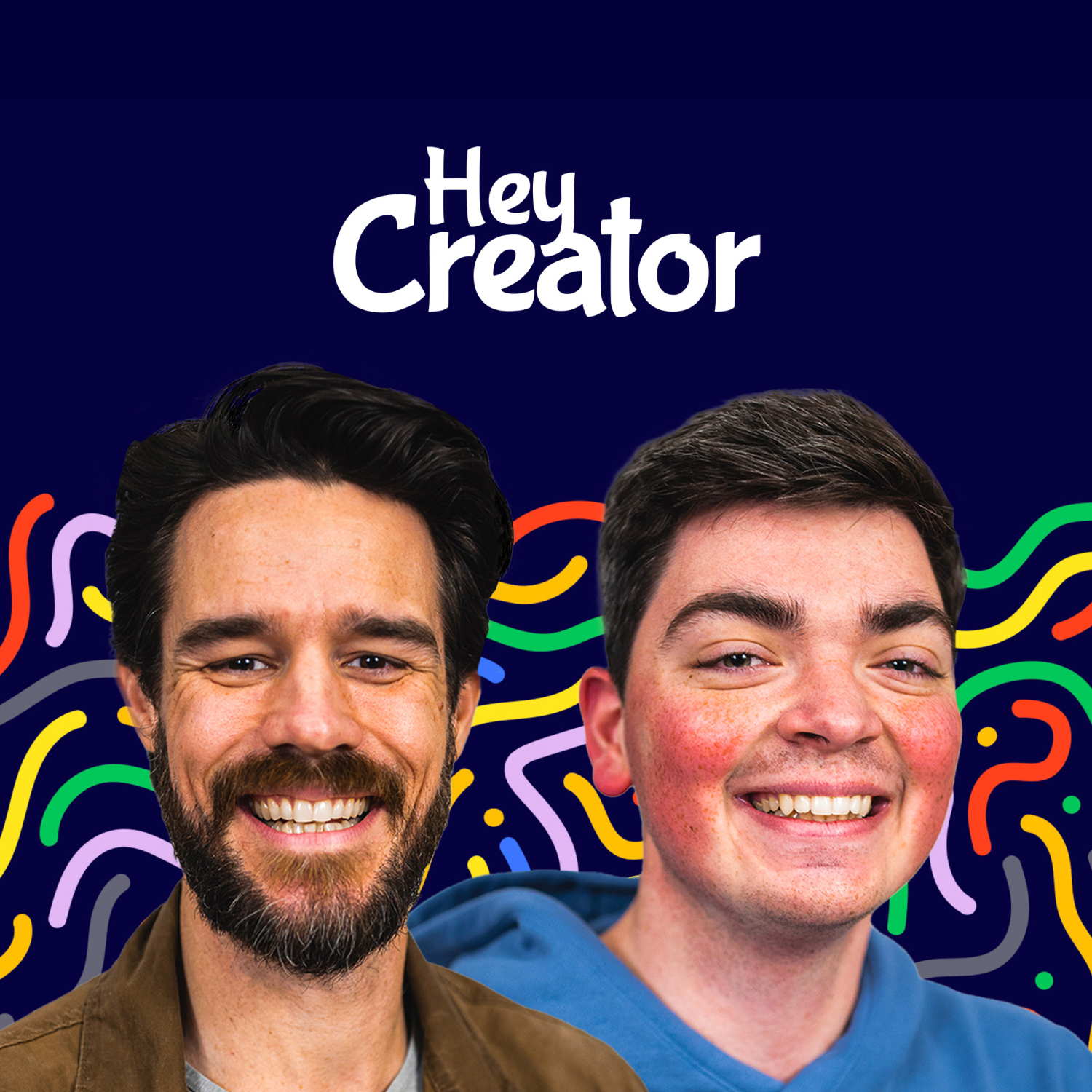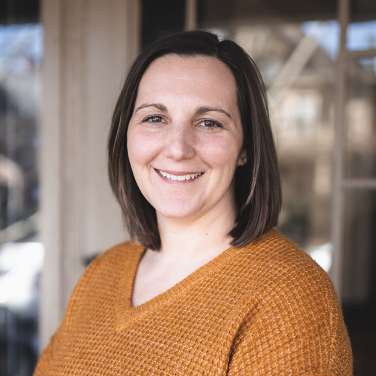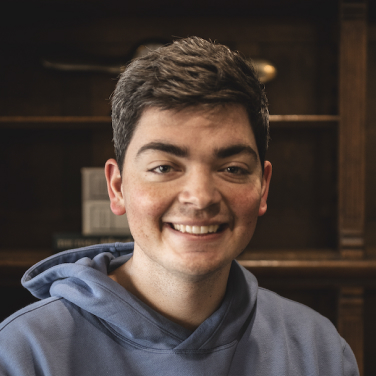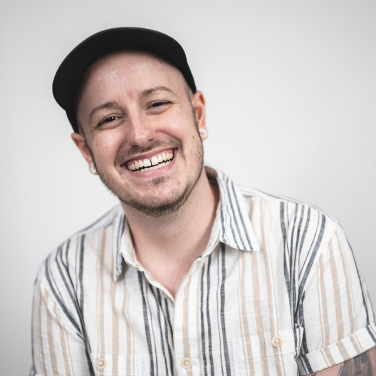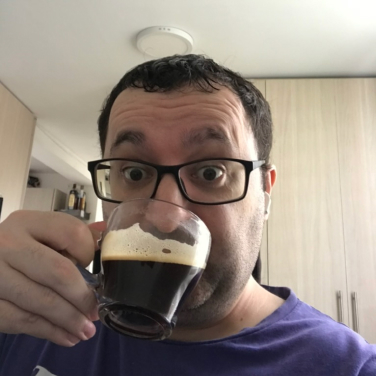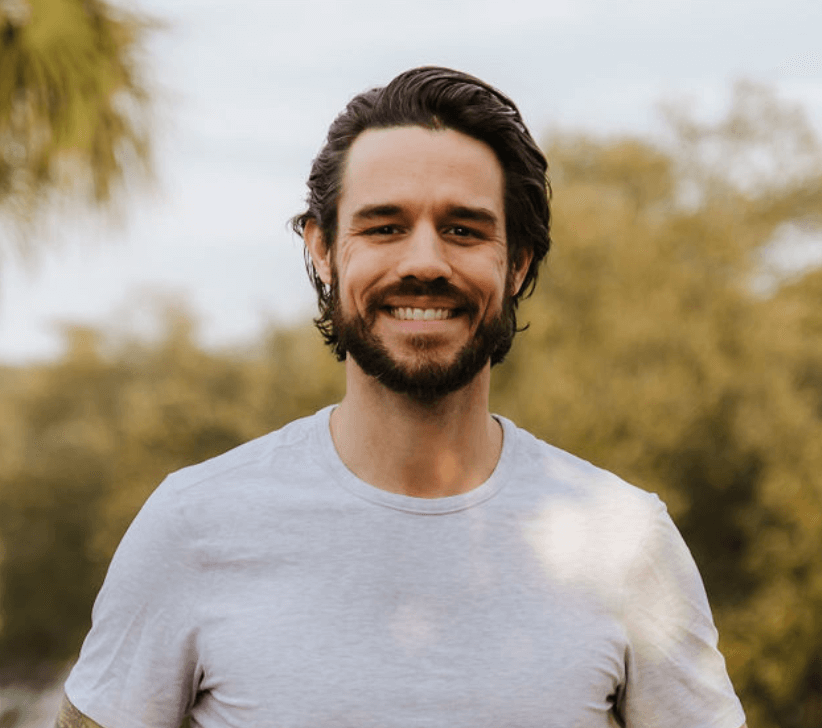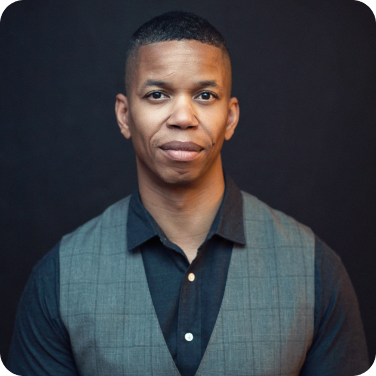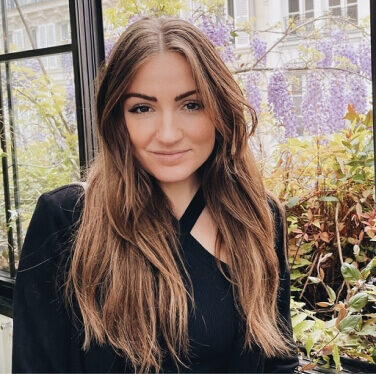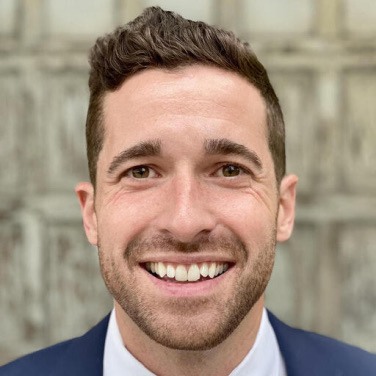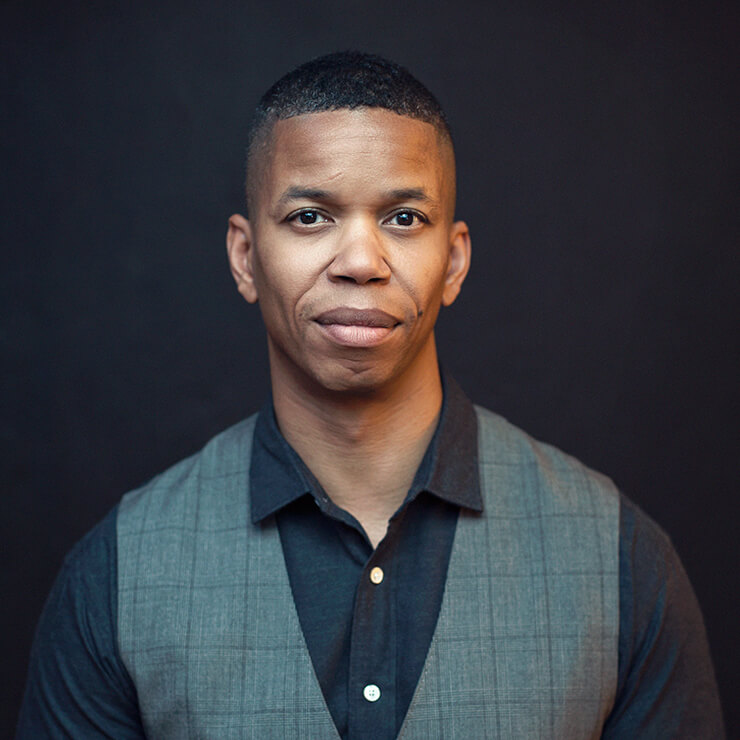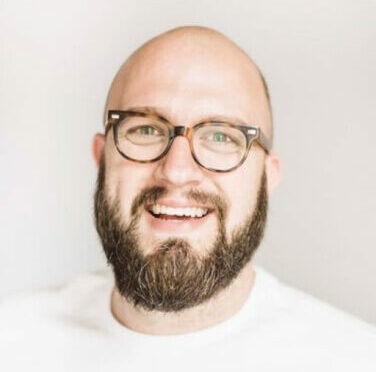[00:00:00] Matt Ragland: HeyCreators. I want to tell you about the sponsor of today’s show and it is Riverside FM. Now I love using Riverside for the HeyCreator podcast, but we use it at HeyCreator for many other things, including client interviews and community calls. At times it is. It is the best tool that I have found for recording podcast episodes, either by myself here with Tim or with our guests.
[00:00:27] There are several reasons that we chose Riverside to be the tool of choice for the HeyCreator podcast, but let me give you a few of my favorites. The very first one is the ease of use and the quality of the audio. All I have to do is send a link to the guest and they can join. There’s no additional software for them to download or anything special for them to do.
[00:00:47] It is so easy. The other big thing that I love about Riverside is how it records all of the audio and video locally and individually per guest. What that means is if someone drops a connection, it doesn’t affect anyone else’s feed. It also means that if someone has some background noise going on or something that could affect other people on other recording platforms.
[00:01:10] Riverside isolates all of those tracks, which makes it really easy to clean up in post production. Another great feature that Riverside has come out with recently is their AI clip generator. This makes it so much faster and easier to get those short form vertical videos from the best moments of the Haker series.
[00:01:26] I highly recommend using Riverside FM for your podcast. And to get a special rate, all you have to do is go to riverside. fm and use the coupon code. Hey, creator. That’s one word. Hey, creator for 15 percent off any Riverside plan.
[00:01:41] HeyCreators, it’s Matt. And in this episode, Tim and I talk about the value of niching down now in a real world. In a recent episode, you may recall that we said the fear of not being able to select a niche can be one of the common obstacles that creators face early on. And so we’re going to talk about this, the value of niching down, how important it is to protect that topic that you select.
[00:02:12] Potentially be the most important thing that you do in your creator business. It allows people to kind of point at you and say like, Matt is the guy for this, or Tim is the guy for this. The person that you’re going to be hearing from after Tim and I have this conversation is someone that I believe has done as well as anyone at protecting his topic and niche over time.
[00:02:34] That is my friend, Justin Welsh. Uh, this conversation is taken from the book. The session that he did at the HeyCreator Summit, but during this, you’ll hear how much Justin focused on his solopreneur niche. He was one of the people that actually like, if you look at Google Trends for the term solopreneur, it goes like up and to the right.
[00:02:58] When Justin started protecting and making it that term, that topic, the only thing that he talked about, and he did that so fiercely for two, three years, he talked about solopreneurship. He talked about what it meant to, like, be a solo creator. When you see the trust that he’s built with the audience, besides just the volume of people, the number of subscribers that follow him on LinkedIn, that follow him on X, that now follow him on Instagram, and subscribe to the Saturday, Saturday Solopreneur, you’ll realize, How powerful that is.
[00:03:40] Now, if you go to Twitter, if you go to the X, if you go to LinkedIn, you’ll see that Justin is posting a few other things as well, he’ll post about like hikes that he’s going on or great dinners that he had, or maybe a delicious, you know, you know, IPA that he, that he’s partaking in, or like the bear that sometimes shows up in front of his house.
[00:04:04] These are things that two years ago, even a year ago, he didn’t really talk about that much. But it’s because of the trust that he’s built with his audience, and the connection that they feel with him, that now, Justin is like, Filling out his personality. So when you listen to Tim and I talk about niching down, only here, me and Terry Rice talk with Justin about how he built his business, how intentional he was with his topic and the development of his writing voice and style.
[00:04:36] You’re going to see all of these pieces fit together.
[00:04:49] Darrell talked about this, that if you’re just doing this as a side hustle, then you can have as many things as you want. But if you want to build a business out of this, the more clarity that you can give to your audience or potential audience, the flag that you can wave. And. On the internet is the thing that is going to drive your business up or down, like the level of clarity and the decisiveness and the specificity of the content that you have and how it’s going to help potential subscribers and customers and clients.
[00:05:24] That is the thing to think about and the thing to decide on like that is a way higher priority than the name of a newsletter or even the na, even the name of a business, to be honest.
[00:05:35] Tim Forkin: Yeah. Think about this in the most practical sense. And I’ll tell a little story here. All of last year, I was running a short form video editing business, and I was recommended over and over and over again as like, Hey, this is my short form video guy.
[00:05:49] This is the guy who will do your short form video content. Right. Because I had narrowed in on that so well, and it wasn’t just editing, it’s consulting a strategy, but I’m this person’s short form video guy. That’s nailed down. You become so much easier to recommend and share and point to others. If you just become insert thing, guy or insert thing, girl, not necessarily like calling yourself that, but being that for other people like Matt, you are the newsletter guy, you’re one of the newsletter newsletter guys.
[00:06:19] So, but you aren’t always that you’re also like one of the dad content guys, like you, dad, dad, there’s a, there’s a brand or a name for you. Um, that’s like the, the win of narrowing down on something is, Hey, this is the fashion person that I know that other people should follow too. This is the, E commerce person.
[00:06:40] This is the real estate person, whatever your thing is, the benefit to narrowing really down on the one thing, instead of just going out and talk about all the things is you can’t be recommended for being the guy who loves bicycles and also helps me with my son’s math homework and all these different things.
[00:06:57] Because Rachel Rodgers talked about this at our HeyCreator Summit, and I was working that call. Absolutely love it. And I’ll echo it even further. Once again, I know exactly the dollar amount. I made by being the short form video guy for people on my network. And if you can be that person in your network or online, I highly recommend you do that.
[00:07:18] Matt Ragland: Yeah. The Twitter guy trend is kind of like, it’s kind of dying out a little bit on Twitter X. Like you don’t see as much of the like, Fill in the blank guy stuff in bios anymore, but it, the lesson still remains that the more specific you can be about how you help people, the easier you are to recommend.
[00:07:40] I think of this like a dinner party, a dinner party problem or a dinner party conversation. So it’s like if I’m at a dinner party and people are like, Hey, you want to think of it like, how would someone else talk about you and what you do when you’re not there? And in the past it’d be like, Oh, you know, Matt.
[00:07:57] Has a YouTube channel. Matt has a newsletter, like, Oh, what’s it about? How could he help possibly help me? They’re like, well, he talks about marketing and business and leadership and fitness and sometimes parenting and then some more fitness would be like, okay, like I need help with some of that stuff, but something to keep in mind is like, if you’re talking about a lot of things, then.
[00:08:23] People won’t follow you unless they just already know you and they already trust you. They’re like, there are people now, and we should do another segment about this. I’m saying this both for us listening now and also for the future. We’re going to have another segment about this. People won’t follow you for general, like, Broad advice until they already know and trust you for a very specific thing I call this the hour the hourglass effect, but we’ll talk about that in a different episode Like right now if Tim Ferriss because I’ve been listening to Tim talk about stuff for over a decade if Tim Recommends like some fitness routine to me I’ll probably look into it if Tim recommends like some kind of supplement or productivity stuff These are all very wide ranging I wouldn’t listen to Tim about parenting stuff, Tim’s, Tim’s not a dad, but there are so many things that I would listen to Tim about.
[00:09:14] And it’s because I’ve been listening and reading his work for over a decade. But if people, if people are just like stumbling upon your content and it’s all over the place of it, like, well, I don’t really know if this person will consistently help me. It wasn’t until. On YouTube that I got specific about productivity and I got specific about bullet journaling.
[00:09:34] And even more specifically, I was talking about bullet journaling without all of the like art and scrapbooking that came with a lot of it. It wasn’t until I started talking about newsletters, specifically in the creator economy, started to become more of a newsletter guy and the more of a course launch guy that people were following on and be like, Oh, it’s not just like general creator advice.
[00:09:56] It’s Matt will help me with my newsletter. So over and over again, I’ve seen like these iterations of my own career be improved. My income go up. My influence go up because I narrowed and niched further down.
[00:10:11] Tim Forkin: Yeah. And it’s no joke to be that person. It’s, it’s difficult. I, I know firsthand, I want to be basketball guy.
[00:10:18] I want to be a music guy. I want to be short form video guy. I want to be all those things. I can’t tell you how badly I want to be the guy for all of those things, but it’s not possible. And I’ve seen firsthand, I know Matt, you’ve seen firsthand what happens after you do it for a long enough time. It’s my time.
[00:10:36] Your business, you mentioned it. Everything grows by focusing in on the one thing. And the best part, the first thing you said about how you trust him, Ferris, anything. The best part is that on the other end of that tunnel, you get to become the guy who can just fire off a tweet about your favorite sports team and it hits just as well as your stuff about the focus intention of your business.
[00:10:57] Um, that, like that’s a goal to chase is like, if I talk about my thing for a long enough amount of time. You The people will will love me and trust me enough and One last thing on this is, I don’t know where I heard this, but recently someone was talking about how it’s really hard to break past like your seven or so podcasts that you listen to.
[00:11:17] All of us have probably like four to six podcasts. Yeah, I think you were
[00:11:20] Matt Ragland: talking about this on Bill Simmons. Was it with Derek Thompson? I think that’s where I was. I, I started writing down what are my like five to seven shows. Is it was a really interesting exercise. This is, this is something else.
[00:11:30] There’s another like Rushmore for us in the future.
[00:11:32] Tim Forkin: The thing I’m trying to say here is it’s really hard to become that person for someone. I know who my six, Podcasts that like I will listen no matter what there’s a few on the on the fringes. We’re like, hey I’m probably skipping this one just don’t have the time It’s too too current or too urgent and it’s really hard to get into that that zone and that zone exists for people on twitter It exists for people on instagram and tiktok or whatever And if you find out And if you work long enough to be in that zone for people, you’ve won.
[00:12:00] I think Matt, I told you this, like people want to follow you for your dad’s stuff because of how long you’ve been doing the creator stuff. And that’s a win. That’s a huge win. I wish I would have known that. And I am fighting myself to, to stay on this path because that’s what’s at the end of it for me.
[00:12:16] Well, I
[00:12:17] Matt Ragland: appreciate you saying that. I’ve seen that also, obviously, that ironically, the majority of my new subscribers over the past nine months, a lot of them come through like a few banger, like dad tweets that did, that did really well, but it’s because they stick around then not just for the additional dad stuff, but because they see that I have a clarity of purpose and message around like the core business.
[00:12:46] And we have people that have become clients, it’s because of the net trust has been transferred. The only other thing that I would say about this is if you do have something that is more lifestyle oriented, like for me, dad content, occasional fitness post, really like understand when that might be a good fit to post.
[00:13:09] And just be mindful about when, when you’re sharing that stuff. For example, with dad content, I almost only ever post that on Sunday mornings. And if I post anything else that isn’t business related, it’s often mid to late afternoon. So like the core message is always going out first thing in the morning, Monday through Friday, Saturday morning banger, and then Sunday, if I have something for dad content, then that’s when I’ll post that.
[00:13:42] It makes me think about, there was, uh, I heard Eric Schmidt, who used to be the CEO of Google, he talked about Google’s rule, and he talks about it in terms of budget, Attention and time for the team on like core projects or business areas. You can also think about that from a, uh, content perspective. Like how much are you posting and 70% of what you post.
[00:14:10] 70 to 80% should be on the core business all the time. That’s the money maker. Keep it going. , you know, keep, keep the cash cow rolling. That additional 20 to 30%, 10 to 20 to 30%. That can be the stuff like for me. dad content Sunday morning that I’m posting because I’ve seen the value from it, but it’s not the thing that like makes the business go.
[00:14:34] It’s not the thing that builds my brand in a way that is going to like help creator help good people digital.
[00:14:41] Tim Forkin: One little piece of that I just realized is The second thing for you, the dad content overlaps with the general person that’s going to be consuming your business content. Like that content, while it isn’t necessarily the same topic, it resonates because all of us can relate to some sort of, whether you are a parent or have parents, you think about parenting.
[00:15:04] I bet in in some form or fashion now it would be really like difficult if your thing was like 90s grunge rock bands because that really Narrows down That person right? so if your second thing can still be a little bit broad in the sense of like most people Deal with this thing. It’s a, it’s a strong interest of mine.
[00:15:24] Something I love to talk about, and it’s something that most people deal with, you can find overlap. Hey, I came to this guy for business content and he also talks about like, parenting is the perfect one because we all think about parenting in, in some way. If it’s like music at a bigger scale, if it’s movies, if it’s your your other thing, it has to have people that are in.
[00:15:46] Both categories.
[00:15:47] Matt Ragland: Yeah. And I like to also think about the overlap here between like the main part of what I’m talking about. Let’s use newsletters example, maybe go a little broader into like general creativity advice and think about what is it about parenting specifically that impacts my life as a writer, as a content creator.
[00:16:12] So if I can find something and I’m not talking about forcing it per se, but find ways that those things overlap, then you can bring those, you can bring those two interests together. The focus, big picture is on like, Creators, but how can I talk about parenting that way? I, I thought about this because when you said nineties grunge rock bands, and I’m thinking about it, like from a creator perspective, I might be thinking about like, well, what, what would Kurt Cobain’s newsletter sound like, maybe not necessarily in the nineties, maybe a little bit more two thousands are definitely around in the nineties and stuff, but like Foo Fighters, what about Dave Grohl’s.
[00:16:50] Uh, journey, what about, like, he wrote a book called, I think it’s called The Storyteller. What could I learn about what Dave Grohl went through building Foo Fighters, like, getting them together, doing all the work? What could that teach us about, like, how we’re, like, grinding through the creator work, were there other types of music, other interests where there was, you know, where the Foo Fighters playing multiple types of music for like, you know what, this rock is what’s going to like push us through.
[00:17:21] And so they just focused on that. That is a way that I could, and just did. Talk about music, talk about art, talk about creativity, talk about like the progression and still put it into a frame of like the bigger thing that I’m talking about. So look for those ways that you can talk about multiple interests that you have, but still root it in.
[00:17:42] In the main topic, it still has to be about the main thing that you’re talking about.
[00:17:48] Tim Forkin: That’s one of the biggest pillars that I always think of when I write a newsletter is, Hey, what artist am I thinking about? And like, what lessons can I learn from them to write a newsletter? I wrote something that got a lot of feedback in my network about Lil Yachty.
[00:18:03] Younger rapper does a lot of just normal rap stuff, but then he made a psych rock album. That just like is nothing like his other stuff. And I took it as like, Hey, if you’re a creator and you, like you, what we talked about with, like, you build up enough rapport to do whatever you want. He literally did that.
[00:18:19] He built up enough years of being an awesome rapper to go do a psych rock album that people like. Cause it’s him.
[00:18:24] Matt Ragland: Yeah. I mean, Donald Glover’s another great example. Donald Glover has a new show on Amazon. He’s in the new like Mr. And Mrs. Smith, and I haven’t started watching it yet, but I’ll watch it because Donald Glover’s in there.
[00:18:35] And then like the great thing was like, I was watching the trailer with, with my wife and she’s like, Oh, I, you know, I like him. He was in like this other stuff. I was like, yeah. And he’s. He’s got a great, he’s got some great rap albums too and she’s like, wait, what? I was like, yeah, that’s Childish Gambino.
[00:18:51] She’s like, you could see like the exploding head emoji because she hadn’t like watched any Childish Gambino, uh, videos. We’re not a big music video duo. But she was like, hold on.
[00:19:04] Tim Forkin: It’s hilarious. Talking about Mount Rushmore, he is up there for me. I didn’t mention him on our Mount Rushmore episode. You also could put on Donald Glover’s standup comedy.
[00:19:12] He has two full-length specials. He does everything. And he’s a perfect example of what you’re talking about.
[00:19:17] Matt Ragland: Yeah. Because whatever, whatever he does, like I’ll go check it out. I may not love every bit of it, but. Anything that Donald Glover does, like I’m in for now. I will watch it. I will listen to it. I will check it out.
[00:19:35] When I think about the times in my life when I’ve felt the most inspired, productive, and motivated, they’re all times in my life when I’ve been around a group of people on the same path as me. These communities gave me the support, Encouragement and motivation that I needed to stay on the path and be accountable for the goals that I set, especially when I hit a rough patch, like if a launch didn’t go very well, or if there was a piece of content that I worked really hard on and it just didn’t really pan out the way that I wanted it to.
[00:20:01] This is why we started the HeyCreator community. A place for you to connect with like minded creators, follow a proven roadmap for success, and get the support you need to build your creator business. And look, the people are the most important part of any community. But, it’s more than just the people.
[00:20:16] It’s more than just the connection that you make, even though that is critical. You also get step by step training and direction from our team of creative experts. Plans start at just 39 per month with no long term commitments. Go to HeyCreator.com/community to learn more and sign up for your first month.
[00:20:38] I think you have one of the most defined styles and like tones of voice that you write with of anyone that I follow online. And not just that, just again, like through our conversations, I know how. Much you protect that like it really matters to you like how you say things who you’re talking to The kind of person that you want to help and they said I think that you do that Better than anyone else that I follow on the internet.
[00:21:05] So how did you how did you go through like defining that voice? I know like everything you do, I think is very intentional. So I’m curious about like how you, how you define that voice that’s becomes like so uniquely you, I mean,
[00:21:18] Justin Welsh: first of all, thank you. I appreciate that. Um, you know, I, I think it comes through a few different things.
[00:21:23] Number one is I have the benefit of starting to write online being. a little bit older than some of the creators today that are, you know, maybe in their 20s or 30s. And I think that gave me a lot to think about, uh, over the course of my life. I’m glad I didn’t write on the internet when I was in my twenties.
[00:21:43] I probably wouldn’t be around or, or, uh, you know, to, to do great things like this. I was pretty immature when I was young and I’m glad that I started writing as I was a little bit more mature. And I think I started to think through like, Okay, if I’m going to write on social media, what am I going to try and be like?
[00:21:59] Like, who am I going to try and be? And the only person I want to be is myself. When I started doing it, I got worried that being myself wouldn’t be marketable or exciting or attention grabbing. And so when I started to write, I tried to be a little bit more like some of the people that I saw on the internet.
[00:22:15] And it just didn’t feel super comfortable for me. So over time, instead of saying like, Oh, I have to be attention seeking, or I have to be Vegas lights and lasers, or, you know, marketable or things like this. I just started to think maybe if I just deliver really high quality content, that’s robust and helps people learn things.
[00:22:32] It educates them. They can apply it and get better at something that I can write it in the way that I speak. But I can write it in my true tone of voice. I’m also not interested as a person in getting an arguments. I’m not a particularly argumentative person. I’m not interested in bashing people’s lifestyle choices.
[00:22:49] I don’t care how people live. I’m I don’t want to tear someone down. I’m not interested in owning anyone. Um, you know, I don’t get into a lot of those like games. You can get short term attention reward and long term you can damage your brand. So I decided to just be who I am as a person, try and be as thoughtful as possible.
[00:23:09] Whenever I publish anything, my goal is to always say, can this be misconstrued? Um, could someone take this and find a fence in it? And there are times when I write things even today where I was like, Oh, I, you know, I didn’t think that one through well enough, but I try my best to put it through that lens.
[00:23:23] And over time, it’s like riding a bicycle. Like I sound like I sound when I talk and when I write, it just comes out the way that it comes out and it becomes habitual. Right. And so, um, I’m glad that people enjoy it. Uh, sometimes I wonder why, but it’s always a nice, uh, a nice thing to be, you know, to have my content enjoyed.
[00:23:39] So I don’t know if that answer made sense, but that’s how I was thinking about it.
[00:23:41] Terry Rice: There are a lot of people who are trying to cultivate their online voice. They don’t have the confidence and the clarity that you do. And that can result in them, them copying people. Besides copying you, how can other creators cultivate their voice online?
[00:23:55] Well, there are, there’s like
[00:23:55] Justin Welsh: two things. There’s two things, right? There’s inputs and there’s, there’s outcomes. So the inputs are like how you write, what your voice sounds like. And the outcome is how did that resonate with an audience? And I think oftentimes people are really focused on the input. So they’re like, how do I sound like insert person’s name here?
[00:24:14] How do I market myself like this guy or this gal when really they should be focused on the outcomes and the outcomes are, what do you want people to take from your content? Do you want them to get. Better at life business. Do you want to be helpful? Do you want to make them think, do you want to be entertaining?
[00:24:29] Like you want to make them laugh. What is the thing that you want to do? And the goal is to focus on improving the outcome while the inputs remain true and authentic to yourself. So you need to be able to, for example, I want to help people build businesses, build brands, do all those things online. I focus on the outcome through the quality of the content and by doing so I I don’t have to write it like Matt or Terry or Sahil or Dan Coe or Dan Goh.
[00:24:55] I can just write it like myself as long as the content helps them reach the outcome that I want them to achieve. Because yes, there are certain people who make a mark because of their voice or their tone or their style. There are plenty of people like that. I want to make my mark based on the quality of the content, the usefulness of the content, how applicable it is, how much it helps people.
[00:25:15] And if I can really focus on that quality, the voice almost becomes secondary. And over time you sound more and more like yourself. You find your groove and pretty soon you marry these two things, which are really cool. You’ve got this really authentic, genuine, hopefully kind of something that resonates in terms of Tony, your voice and inputs.
[00:25:34] And you’re also delivering these really high quality outcomes. If you can do both of those things really well, I think that’s when you become a really great creator.
[00:25:41] Terry Rice: On your end, I’m sure you’re getting pitched all the time for partnerships, for promotions, so on and so forth. So I’m just wondering, how do you, how do you filter out these time wasters, these distractions, even though they do look so alluring?
[00:25:52] I
[00:25:53] Justin Welsh: call this like shiny outcome syndrome. Like we all know what shiny object syndrome is, where we chase shiny objects. I get this thing called shiny outcome syndrome, where Oftentimes I’ll look at somebody else, right? I’m not immune to being jealous of other, um, creators and entrepreneurs. I’m I, I see people and I’m like, man, I wish I had that business or I wish I had this business.
[00:26:13] And when I see that thing, I see that shiny outcome, right? And that outcome might be. A bigger business than mine or a different business than mine or something like that. What I want is the outcome. What I don’t want is everything that goes into reaching that outcome. So I try and push every opportunity through this lens of like, will, will I actually enjoy the journey and the work?
[00:26:33] And if I write down on pieces of paper, I just open up a notion document and start writing down like, okay, what do you give up when you chase this outcome or opportunity? What do you gain? What are the three best skills? Pros or the three worst con most of the time I can figure out that other people’s business models, other people’s money, especially when they make, you know, much more than I do are generally not worth it for me.
[00:26:55] I’m not interested in doubling the amount of money I make by doubling or tripling the amount of work I do. I just, I don’t, it just doesn’t work for me and it doesn’t work for my, my wife and my family. And, um, I think that’s really important. So I just kind of push it through that lens all the time. And also it’s like.
[00:27:12] I recognize how distracting things can be when you’re just one person. There are lots of times people come to me and they’re like, I have this thing and you can partner with me to do this thing and it will make you lots of money. And I look at the thing and I’m like, this is useless to my audience, right?
[00:27:26] Like this doesn’t bring them any closer to the goals that they’re trying to achieve. I like to make a good living. Don’t, again, don’t get me wrong, but I’m not going to do it by giving my audience something that’s not useful. Like I just, that’s just short term mindset. And that’s how you grab something short term and screw yourself long term.
[00:27:43] I’m just not interested in that. Not only because it’s just the wrong, the wrong thing to do, but it’s just like, not the kind of person my parents raised me to be. So I’m just not going to do that.
[00:27:53] Matt Ragland: HeyCreator, I have a secret weapon that I want to tell you about. First I want to tell you how I use it. You know those awesome HeyCreator newsletters that go out once or twice per week that sign off from me, Matt Ragland? Well, I’m not writing those, not directly anyway, because every newsletter is researched, written, edited, and uploaded to ConvertKit by our automatic evergreen team at HeyCreator.
[00:28:21] And the reason those newsletters sound like they’re coming from me is because they’re coming directly from the HeyCreator show along with special presentations that I’ve made in the community, keynote speeches, or other podcasts that I’ve been a guest on. Automatic Evergreen lets me send high converting quality newsletters on time every week with a fraction of the time and attention that I used to give to a newsletter.
[00:28:42] And this is so valuable because it gives me more time to focus on the podcast and on the community. If you’re curious about how Automatic Evergreen can put your newsletter on autopilot and make you money, then click the link in the show notes to book a call.
[00:28:59] Justin, something that I want to talk about is your product development system and whether it’s a system or just the way that you think about developing products, because when you started to think about, Hey, I’m going I’m going to do a course. I’m going to have a product to help my audience specifically.
[00:29:16] How did you think about making it the way that you did? Because there wasn’t really anything working like that when you, when you started it,
[00:29:24] Justin Welsh: I started like a lot of people back in like 2017, trying to figure out online marketing. Um, and the only thing that you could do kind of back then was like, you Googled around, you found some authors and I think I found Russell Brunson.
[00:29:38] Right. He’s the guy everyone found kind of back in 2017. Bought his books, read through everything. And like, by the way, kudos to that guy built amazing, huge business. Right. Like I was working as an executive and our Forbes 500, like best startups, like his was number one. The one that I was working for is number two.
[00:29:57] And I was like, this guy built a startup around like, he’s obviously really good at what he does. But as I read through the book, like it became very, very clear that it was not my personality sending these random emails that didn’t really say much or doing a webinar, like to try and make sales. Hey, Brandon’s coming up from Kansas.
[00:30:14] Oh, hey, everyone, like pretending like things are alive when they’re like, that just doesn’t work with me. It’s just not, I’m not comfortable with that. So I think it was a lack of comfort number one. And the number two, like, It was also just a lack of confidence. Like I didn’t have a lot of confidence in going out and putting together something and being like, I’m Justin Welsh, buy my product.
[00:30:32] It’s 1500 bucks. Like I just didn’t, I didn’t have any confidence. So I was like, all right, what if I get comfortable and I do things my way, which means no, like I was talking about with Brendan Dunn about this. Like we just did our creator, the creator MBA launch, and he was very helpful in that, uh, during that launch.
[00:30:47] And I said, when we put this launch together, the number one thing I want to say is it’s not internet marketing. Like I don’t want this to feel internet marketing and I want this to feel like you should make a good choice if you like this course. So I brought a lot of that into my very first course called the LinkedIn Playbook back in 2018.
[00:31:03] I was like, I’m going to put everything I know about this platform into one video course. I’m not even going to do email marketing. I’m just going to announce it and say here it is and I’m going to make it 50. I had 20, 000 followers and like, I think 1500 people bought it over the course of time and I made 75 grand and I was an executive at a startup.
[00:31:24] I wasn’t going to quit my job and go, go, you know, be a course person. Uh, but. What I did almost unintentionally was I created this seed of 1500 people that had paid 50 and gotten way more than they bargained for, and they were really, really excited about the quality of this 50 piddly wink course. They thought it was going to be bad because of the price, and that was a lucky thing for me.
[00:31:50] So as I grew my following a little bit more, people kept reaching out and saying, when are you going to release an update? When are you going to release an update, update, update. You could charge 500. You could charge a thousand for this. And when I released my second update, I said, what if I just made it one 50?
[00:32:04] Generally most people can afford that. Not, not everyone. What if I use purchase power parity so that you got discounts based on what country you lived in around the world and really opened up access for people across different countries and continents. And. What if I do the same thing, charge them 150 bucks or 50 if they live, you know, in India or somewhere, Mexico or wherever.
[00:32:23] And then I just deliver 10, 000 worth of. Goodness, right? Could that seed of 1500 people get bigger? Could it become 5, 000? Could it become 10, 000? And finally, when I launched the creator MBA, that’s five years of building trust of undercharging of over delivering that long game mentality to pricing allowed me to finally pick a price that was a little higher.
[00:32:46] Still using purchase power parity, still making it accessible for people across the world, but at a much bigger scale. And so thinking about that long term allowed me to do that. And I’m so glad I started with what I call like a trust trip wire, where it’s like, spend a few dollars and I’ll show you how much information I can give you and start building trust with people and showing them who you are as a person.
[00:33:05] Terry Rice: Looking at the comments and we’re getting a lot of questions in regards to just you in general, what camera you’re using, like what kind of cup is that? So on and so forth. So a lot of questions, but I’m wondering. What question do you almost never get asked by people who are aspiring to be solopreneurs, but they should ask you because the answer is so important.
[00:33:24] Justin Welsh: Yeah, it’s really good question. Um, I’m going to steal that. That’s a really, yeah, it’s really good question. Um, I think, I don’t know how to, how to translate this into a question, but I actually wrote a tweet about this. That’s, I’m sending tomorrow. So it’s a good, good timing. But if you can’t articulate why out of a crowded field of people who are similar to you, you’re the person that people should trust their time, money, and energy with, you’re going to struggle.
[00:33:49] I often see people say things like, I’m the best, I can do it the fastest, I’m the cheapest, I have the most experience. All of those things can be true until someone can do it faster, cheaper, better, and with more experience. Then what? Those are not unique. Those are not unique identifiers of your business.
[00:34:05] And so people often ask about what’s tools, you know, how can I write better on LinkedIn or Twitter and all those things are important. I get it, but you really need to focus. How do I make myself the absolute obvious choice? To my most ideal customers. And I built the whole module and the creator MBA about this.
[00:34:22] And I think it’s one of the longest modules because if you don’t understand your customers objections, if you don’t understand their aspirations, if you don’t know how to go deeper on firmographics, psychographics, demographics, you can never come up with a true statement that encapsulates why your ideal customer should choose you and why you’re the absolute obvious choice.
[00:34:43] I just don’t think people spend enough time thinking about that. Candidly, like. That for my business, that became more evident over time. Um, as I became more comfortable, as I talked to more of my audience members, it became really clear. And some words that stick out to me are it’s not experienced. It’s not fast.
[00:35:01] It’s like. It’s a lot around tactical. It’s a lot around being a tactician. It’s around logic. It’s around systems. It’s around automation. It’s making the complex simple. These are all words that I hear from my audience that I put on to my landing pages or my website or my email copy or my content so that people are reminded why I’m the right person to choose to solve their pressing problems.
[00:35:26] And so I don’t think people think about that enough or, or as frequently as they should.
[00:35:30] Matt Ragland: I feel like we could have a whole conversation just about that last statement for the next, for the next hour, because it is something to tag onto with it, like making the connection between something that you said at the beginning of right for yourself.
[00:35:46] Do it for yourself, be yourself, but also make sure, like, how do you, how do you combine those two ideas and concepts? So, like, yes, it should be, like, for me and my, I want to do it my way in a way that’s unique to me, but also making sure that I’m positioning it in a way that reflects the type of person that I want to serve in the way that I want to do it.
[00:36:05] Justin Welsh: And there’s a lot of great questions you can do, like there’s something I always talk about which is like negative present and positive future, which is like all of your ideal prospects are in what I call the negative present, which means they have a problem, they have a challenge they don’t know how to solve, therefore their present is negative, and in the future, the future of that person after having solved that problem is the positive future, the positive future version of themselves with that challenge having been overcome.
[00:36:30] There’s a gap between those two things. Thank you very much. Inside of that gap are a lot of things, there are objections to overcome, there are aspirations they might have up in their head, words and things they might use to describe what that future successful person looks like, feels like, sounds like.
[00:36:44] You got to suss all of those things out of your prospects and customers to really get that language. And then you also talk about like, if you worked with me or you went through my program, like, How, if it was a 10 how would you describe it? Right? Oh, it might be fast. It might be easy. Those are, those are some real simple words, but you’re going to get a lot of real free form text, really good conversation.
[00:37:05] All that stuff you hear from your audience is part of your unique value proposition. It’s all of the stuff your audience will tell you why they chose you. And like, you have to be listening. And like have a place where you’re sharing that stuff. You’re really ruminating on it and you’re using it to separate yourself more and more as you learn more and more about why people choose you.
[00:37:22] But I always kind of picture negative, present, positive future. There’s a gap, like, what are the words? What are the objections? What are the aspirations I need to get people over that gap to their positive future?
[00:37:37] Matt Ragland: Thank you for listening to the HeyCreator podcast. This show was produced by Tim Forkin and would not be possible without the The support of our incredible team at HeyCreator and the HeyCreator community.
[00:37:49] Make sure you connect with us on all of the socials at HeyCreator Hey, and for more information on our company, go to heycreator. com and also sign up for the newsletter while you’re there. See you next time.



